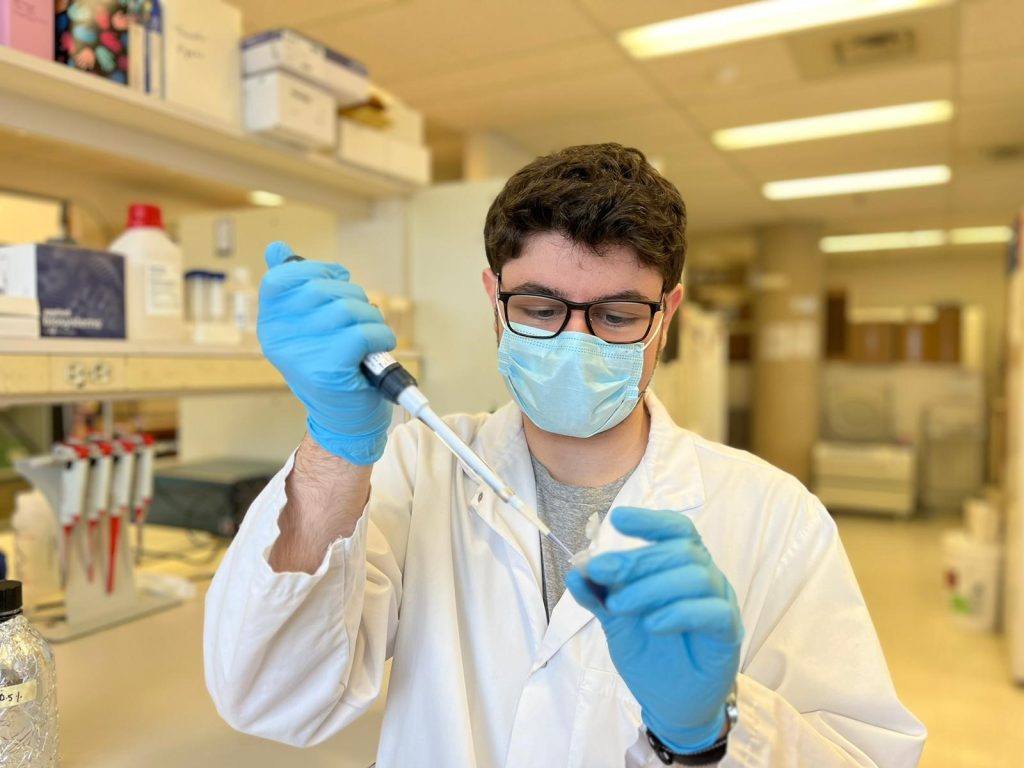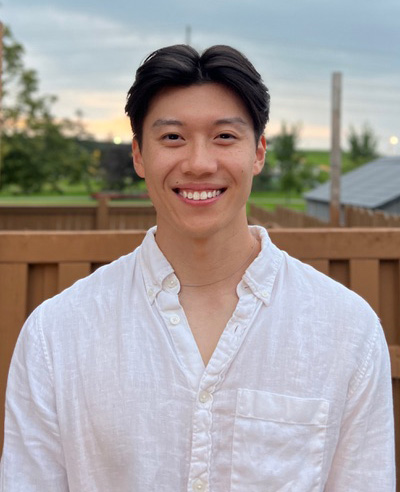David Susman is a 2nd year MSc student in the Department of Anatomy & Cell Biology at Western University. He is conducting BCC-funded breast cancer research under the mentorship of Dr. Alison Allan at the London Health Sciences Centre/Western University.
- Could you share your motivation/personal connection to breast cancer research?
I became passionate about cancer research after working as a clinical oncology researcher in Barrie, Ontario in the summer of 2019. My interest further grew while studying cell biology and cancer development during my undergraduate degree at Western University. Having family and friends who have been diagnosed with breast cancer has solidified my motivation to pursue this line of research.
- What specific areas of breast cancer research are you currently focusing on, and why are they important?
My research focuses on investigating how and why breast cancer spreads or metastasizes to other organs, in particular to the lung. One way breast tumors do this is by communicating with healthy tissues through the release of tiny particles called extracellular vesicles (EVs). My goal is to identify how EVs from different breast cancer subtypes (luminal, HER2-positive and triple negative) can modify healthy lung cells. This work is important because it will contribute to a better understanding of how breast cancer spreads and discover new ways to block early changes in the lung before metastasis occurs.
- Can you discuss any challenges or obstacles you’ve encountered in your breast cancer research, and how you’ve overcome them?
One initial challenge in my research was identifying a technical method of accurately determining cell-wide protein changes in healthy lung cells treated with EVs. We have since applied an innovative molecular approach that combines two protein labeling methods called SILAC (Stable Isotope Labeling with Amino Acids in Cell Culture) and TMT (Tandem Mass Tagging). These tools will allow me to assess how and in what “language” breast cancer cells communicate with healthy lung tissue, as well as uncovering specific changes in the lung that create a supportive environment for metastasis.
- What advice do you have for young individuals interested in pursuing a career in breast cancer research?
As a student who has experienced many challenges in “getting a foot in the door” to start working as a researcher, the key to pursuing a research career is perseverance. Reading and studying published academic and clinical research to determine what interests you most is important, as this is the work that will have the most impact in your hands. Additionally, there are many opportunities and laboratories that are always looking to recruit. Reaching out to doctors and scientists in the breast cancer field and demonstrating genuine interest in their research has proven fruitful in my journey.
- In your opinion, what role can public awareness and advocacy play in advancing breast cancer research and treatment?
Advocacy of breast cancer research and treatment is incredibly important in continuing the fight against cancer. Promoting research aids in publicizing advancements and discoveries in the field and fundraising to enable the continuation of this important work. Additionally, advocating advancements in breast cancer treatment better informs the public how to stay healthy and provides hope to those fighting their battle against breast cancer.




